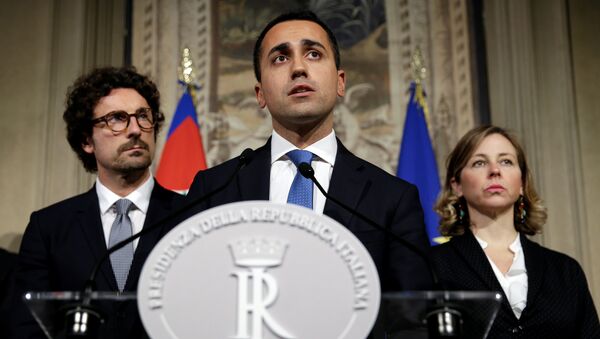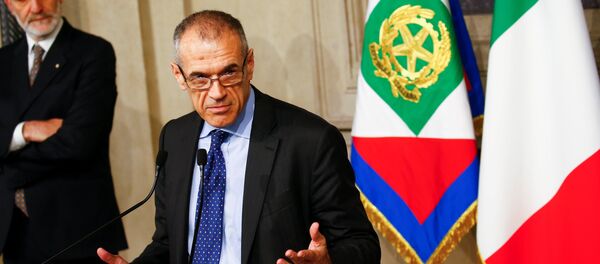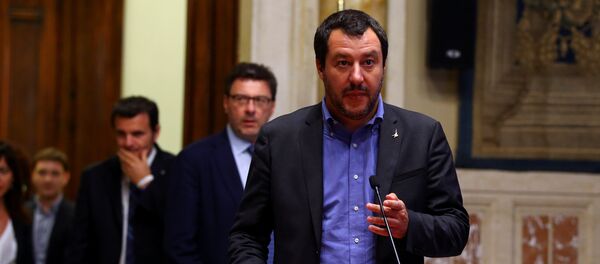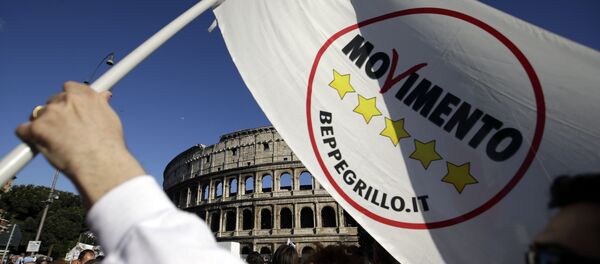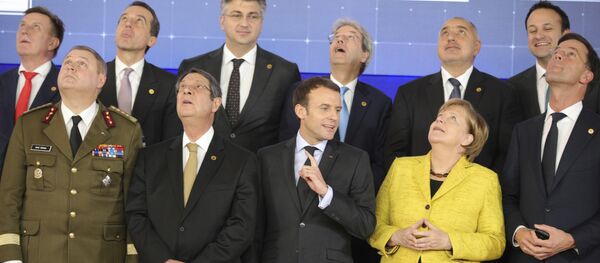The Italian political crisis has given global markets the shivers prompting observers to cast doubt on the future of the European bloc.
The Italians are facing snap elections, which will be held on July 29, since President Sergio Mattarella has rejected the formation of a coalition government, proposed by the Lega Nord party and the Five Star Movement (M5S), which secured the majority of votes in the March 4 elections.
The political uncertainty in Rome immediately affected stock markets around the globe, which plummeted on May 29 as investors demanded higher yields for Italy's government debt. Meanwhile, Italy's benchmark stock index plunged, as did the euro.
The Lega Nord party and the Five Star Movement have never concealed their opposition to Europe's fiscal policies and the use of the euro in Italy, calling for the return of a national currency.
According to Lorenzo Codogno, visiting professor in practice at the European Institute of the London School of Economics and Political Science, the Italian crisis may go beyond the country's borders and spread to other countries of Europe.
"The risk is clear that if this turmoil continues, it might spread out into other countries in Europe and, as we have seen in the past, it might be contagious," Codogno told Radio Sputnik on May 31.
However, Rome's potential abandonment of the euro would devalue all Italian government bonds in European banks, inflicting damage on the EU financial sector. According to some estimates, even if the EU financial institutions manage to sell off a large portion of the Italian national debt, their losses would amount to billions of euros.
"If Italy stopped using or was forced out of the currency, there would be enormous repercussions. We would see the end of the European project as we currently know it and for those who are in favor of an integrated Europe, it would be a complete disaster," James Newell, professor of Italian politics at the University of Salford, told Radio Sputnik.
The leader of the Spanish Socialist Workers' Party (PSOE), Pedro Sánchez, has been named as Rajoy's possible successor. According to a number of surveys, Sánchez currently has 175 votes out of the 176 needed to take over as Spain's new prime minister.
Spain is considered the third main hotbed of the potential European crisis following Greece and Italy. The country's state debt amounts to 99 percent of GDP. One way to tackle the financial problem is to leave the Eurozone and reshuffle the country's economy.
In case Italy and Spain follow in the footsteps of the UK, which voted for Brexit on June 23, 2016, the European Union would turn into a triumvirate of Germany, France and Belgium, surrounded by a crowd of weak countries requiring constant support.
Speaking to Sputnik, Mario Borghezio from the Lega Nord party accused the major European capitals of exerting pressure on the Italian president who earlier rejected a right-wing-backed coalition government.
"This interference is unacceptable, as the Italian president stated explaining his decision," Borghezio stressed. "He pointed at the European political institutions. In this way, even the president admitted that our country has limited sovereignty."
For her part, Marine Le Pen, the leader of the French right-wing National Front, lambasted Brussels for meddling in Italian affairs. According to the French politician, the Italian political crisis was provoked by EU institutions, which violated the country's democratic rights.

